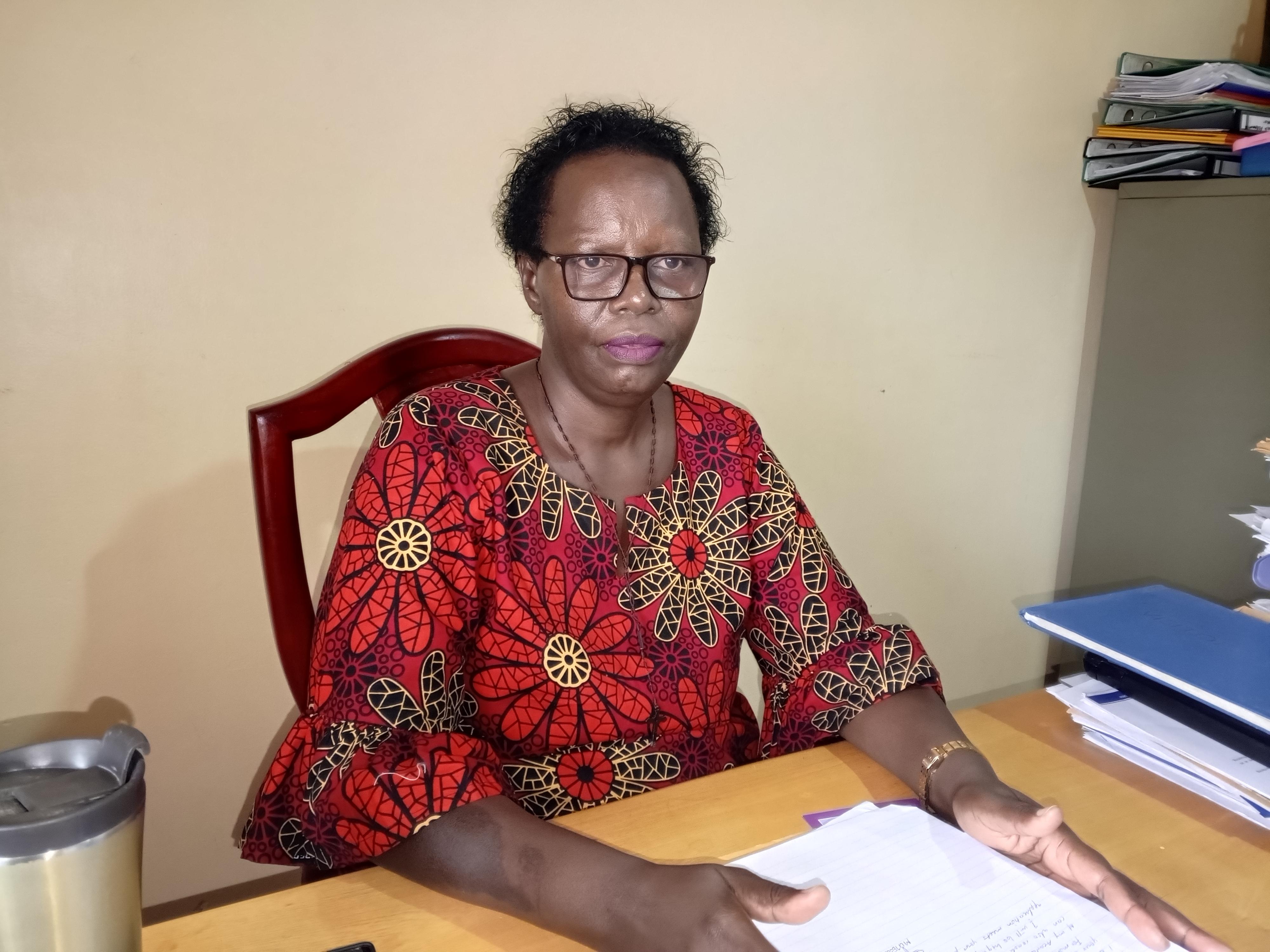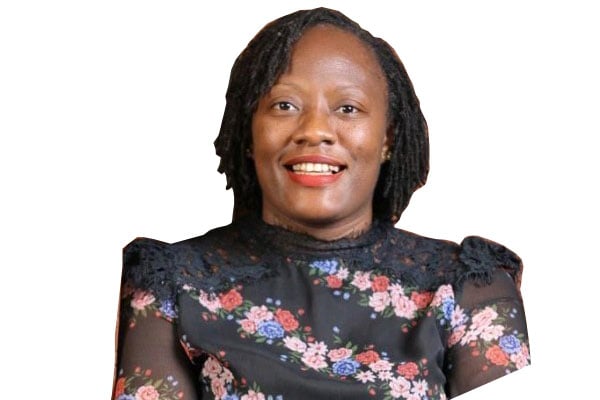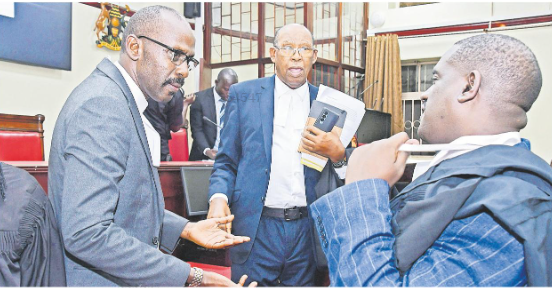
Teachers share ideas during a workshop at Gustro Bookshop in Kampala City in 2022. The government has drafted a new policy that promises to transform the education system. PHOTO | PROMISE TWINAMUKYE
The government has drafted a new policy that promises transformative changes in the country’s education system.
The draft policy, seen by the Monitor, is designed to make education more accessible, equitable, and efficient, with direct impacts on students, parents, and schools.
No school fees
One of the most significant aspects of the new policy is the stopping of school fees and other charges in all government-owned primary and secondary schools.
This aims at saving families who have struggled with the financial burden of keeping their children in school.
Additionally, all government-owned primary and secondary schools will operate exclusively as day schools.
The proposed policy comes after 27 years since the government introduced the Universal Primary Education (UPE) programme, and 17 years after the Universal Secondary Education (USE) programme.
Independent boarding wings
In an interview with this newspaper yesterday, Dr Denis Mugimba, the spokesperson of the Ministry of Education and Sport, said government-owned secondary schools might be permitted to establish and run boarding sections as a separate entity from the main schooling activities.
He said parents who wish to enroll their children in the boarding sections will apply to the schools on a private arrangement, but all day school learners will not pay any fees.
URA to collect fees
The collection of fees in government-owned schools will be done by the Uganda Revenue Authority (URA) with the aim of eliminating the burden of third-party fees, such as those from Parent Teacher Associations (PTAs), Teachers Saccos, and other organisations.
Previously, parents paid school fees directly into school accounts, where the funds were sometimes mismanaged after some schools failed to disclose the full amount collected for the government, a practice Dr Mugimba said would be eliminated.
“If a school had budgeted for Shs1 billion and collected Shs4 billion, where could have the balance gone? We’re saying all the money that will be charged by schools will be collected by URA once the policy has been passed,” Dr Mugimba said.
Increased funding
A source at the Education ministry noted, the government plans to increase funding to all its schools to ensure parents do not make any contributions.
“We are going to calculate the actual cost of delivering free education in universal primary and universal secondary schools. This means we shall come up with a figure to be given to learners as capitation grants,” the source said.
Case of Karamoja
The policy also introduces special education programmes for Karamoja sub-region, where the government will establish and run government-owned boarding primary and secondary schools.
These schools will offer free and compulsory education, addressing the unique challenges faced by children in the vulnerable sub-region.
Additionally, the policy includes measures to secure the land on which government-owned primary and secondary schools are located.
The government will progressively increase the number of government-owned primary and secondary schools and provide a free and compulsory basic education package that covers the essential costs of running these schools.
Parents roles
However, parents and guardians will still be responsible for providing items such as school uniforms, shoes, exercise books, pens, pencils, and packed lunches.
But the policy emphasises that no child should be denied education if the parents cannot afford these items.
The government will recruit askaris (security personnel) for all UPE and USE schools to protect school facilities and ensure a safe learning environment.
Non-teaching staff
Another source at the the Ministry of Education and Sport said the government is planning to introduce non-teaching staff in primary and secondary schools to prevent school heads from charging parents additional fees.
“Some schools have been charging parents money on the grounds that they are paying cooks, security guards, and other staff. We are saying all these will be catered for by the government so that parents are not charged any penny,” the source said.
The government has also committed to providing adequate infrastructure, including classrooms, teachers’ houses, sanitary facilities, and laboratories to accommodate the increasing number of learners.
Currently, the government is in discussions with foundation bodies (Anglican, Catholic, and Muslim) that operate schools in the country.
The Ministry of Education and Sports says if these schools still need government aid, including learning materials, teachers’ salaries, and construction of structures, they should offer free education once the policy is implemented.
The draft policy, which is undergoing consultation, will be presented to the Minister of Education and Sport, Ms Janet Museveni, who will then present it to the Cabinet for approval.
Stakeholders speak out
The Secretary General of Uganda National Teachers’ Union (Unatu), Mr Filbert Baguma, said the government’s decision to make primary and secondary education compulsory and free is a move that has been long overdue.
He said for this policy to be successful, the government should allocate more funds towards hiring additional teachers, providing sufficient scholastic materials, and ensuring there are enough classrooms to accommodate all the learners.
“If we are to make our education free, it must go hand in hand with investment in education. We do not have enough classrooms, and yet the policy mandates that all children should go to school. We also do not have enough teachers in these schools.
“There is only one teacher handling more than 300 learners in a class, instead of the required 53 learners. Unless resources are first committed to the sector, the policy will remain a dream,” Mr Baguma said.
He suggested that the capitation grant should be increased from Shs20,000 to Shs100,000 for primary pupils and from Shs58,000 to at least Shs80,000 per term for secondary students to provide schools with sufficient resources for teaching.
Dr Goretti Nakabugo, the executive director at Uwezo Uganda, welcomed the move to formulate a new policy to regulate the education sector.
She, however, urged the government to include a focus on delivering quality education within the policy.
“Having a policy to regulate the sector as well as enforcing free education and sanctioning those who fail to implement it is a welcome move. Our last assessment indicated that despite free education being available, over 10 percent of learners were not enrolled,” Dr Nakabugo noted.
She highlighted a critical gap in the policy, saying while it is commendable to ensure all learners are in school, attention should also be given to the quality of education being delivered.
“This component receives little attention in the policy yet several studies we have conducted show low learning and literacy levels among students,” she added.
Key highlights
· School fees and other charges will be prohibited in all government-owned primary and secondary schools.
· All government-owned primary and secondary schools will operate as day schools, including seed schools.
· Government-owned secondary schools may establish separate boarding sections, which parents can enroll their children in on a private arrangement.
· A special education programme for Karamoja will establish free government-owned boarding schools for compulsory education in the sub-region.
· Land for all government-owned schools will be registered under the local government or the school’s name.
· The legal framework will be revised to allow government-owned schools to hold and manage assets.
· The government will gradually expand the number of government-owned schools to support universal education.
· A free and compulsory basic education package will cover key expenses for running government-owned schools.
· Parents or guardians will provide uniforms, shoes, exercise books, pens, pencils, and packed lunches, though education will not be denied if these are unaffordable.
· The Uganda Revenue Authority will handle the collection of fees in government-owned schools.
· The government will recruit askaris for all UPE and USE schools to ensure security.
· Adequate facilities, including classrooms, teachers’ houses, and laboratories, will be provided to accommodate growing enrollment in government-owned and grant-aided schools.








